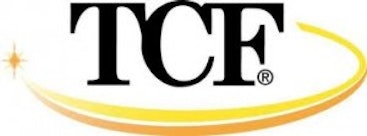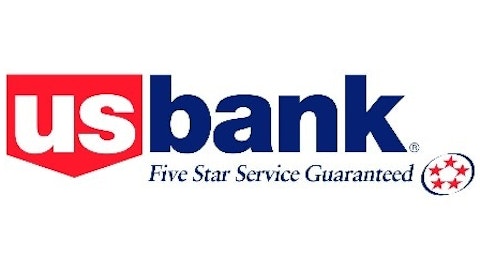
Most of TCF’s loan is for real estate
TCF Financial Corporation (NYSE:TCB), incorporated in 1987, is a national bank holding company, providing both retail and commercial banking products in the U.S. It operates in three main business segments: Lending, Funding and Support Services. Most of its revenue, $981.23 million, or 71.4% of the total 2012 revenue, was generated from the Lending segment. The Funding segment ranked second, with $380.76 million in revenue, while the revenue of the Support Services segment was only $13 million. Most of its deposits, $11.76 billion, or 83.7% of total deposits, were checking, savings and money market deposits, which were considered to be low-cost funds for the bank, while the certificates of deposit were nearly $2.3 billion.
TCF Financial Corporation (NYSE:TCB) loans mostly to the consumer real estate field, with total outstanding loans of more than $6.67 billion. The commercial loan ranked second with $3.4 billion in total loans outstanding. In addition, TCF Financial Corporation (NYSE:TCB) also does leasing and equipment financing, with an outstanding amount of $3.2 billion in 2012.
What makes me attracted to the company is its high net interest margin in the past five years. Since 2008, TCF Financial Corporation (NYSE:TCB)’s net interest margin has stayed in the range of 3.87%-4.65%. In 2012, its net interest margin was 4.65%. However, TCF Financial Corporation (NYSE:TCB) booked a loss of $218.5 million, or a loss of $1.37 per share, mainly due to the $550.74 million in loss on termination of debt.
In the period of 2003-2007, TCF Financial Corporation (NYSE:TCB)’s loan loss reserve ratio was quite low, decreasing from 0.89% to 0.65%. However, since 2008, TCF seems to have a more conservative estimate for the loan default, bringing up the loan loss reserve ratio in the range of 1.67% to 2.88%. In 2012, its loan loss reserve accounted for 1.73% of its gross loan. At $14.50 per share, TCF is worth more than $2.3 billion on the market. The market values TCF Financial Corporation (NYSE:TCB) at 12.9 times its forward earnings and 1.5 times its book value.
Associated Banc Corp (NASDAQ:ASBC) with impressive first quarter earnings results
Compared to its peers Associated Banc Corp (NASDAQ:ASBC) and U.S. Bancorp (NYSE:USB), TCF Financial Corporation (NYSE:TCB) is the smallest company among the three. Associated Banc Corp (NASDAQ:ASBC) is trading at $14.80 per share, with a total market cap of nearly $2.5 billion. The market values this bank at 14.1 times its forward earnings and only 86% of its book value. What I like about Associated Banc Corp (NASDAQ:ASBC) is its heavy lending to commercial and business lending, accounting for 38% of its total loans, while the commercial real estate lending, including construction, represented 23% of the total loans. Residential mortgage loans ranked third, accounting for 17% of the total loans.
Recently, Associated Banc Corp (NASDAQ:ASBC) reported impressive earnings results for the first quarter of 2013. Its total interest income decreased 2.9% to $175.35 million, but because of the lower interest expense, its net interest income experienced a 1.9% growth to $157.65 million. Its net income came in at $47.4 million, or $0.27 EPS, 11.2% higher than the net income in the first quarter last year. Its net interest margin was a bit lower than that of TCF at 3.17%. Its loan loss reserve ratio is higher than that of TCF Financial Corporation (NYSE:TCB). In 2012, the loan loss reserve represented around 1.9% of the gross loan.

